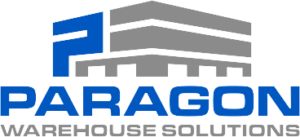In the dynamic realm of e-commerce, returns constitute an unavoidable facet of online retail. As one in every five products purchased online faces the prospect of return, businesses must redirect their focus not only towards minimizing returns but also towards the adept management of this inevitable aspect. This article illuminates the paramount significance of 3PL (Third-Party Logistics) warehouses in returns management and underscores the strategic approaches to optimize the returns process.
Return Rates by Industry
Recognizing the variation in return rates across industries is imperative for businesses to tailor their returns management strategies effectively. The apparel industry, for instance, exhibits the highest return rates, predominantly fueled by issues such as ill-fitting items, shifts in customer preferences, and disparities in product descriptions. Across diverse industries, encompassing clothing, cosmetics, shoes, consumer electronics, furniture, toys, and more, approximately 80% of returns arise from errors, including damaged, broken, or incorrect items.
Impact of Returns on Customer Experience
Irrespective of the rationale behind returns, the customer experience during the returns process emerges as a pivotal factor in shaping their perception of a brand. According to research from Klarna, a staggering 84% of online shoppers would sever ties with a retailer after encountering a negative returns experience. This not only risks damaging reviews that dissuade potential customers but also underscores the critical need for simplifying the returns process. Over half of e-commerce shoppers assert that a positive online shopping experience hinges on an uncomplicated returns process.
Strategies for Handling E-commerce Returns
Optimize Return Policies:
Initiating the returns process begins with crafting a transparent and easily accessible return policy. This policy should furnish unequivocal responses to the ‘When,’ ‘How,’ and ‘What’ of returns, with a user-friendly interface to seamlessly guide customers through the process.
Offer In-Store Returns:
For businesses equipped with physical store locations, providing the option for in-store returns enhances customer convenience. This not only streamlines the returns process but also opens avenues for additional sales, as customers may opt to exchange or explore alternative items.
Warehouse Returns:
In instances where in-store returns are impractical, businesses can implement a system where customers return items via post to the warehouse or fulfillment center. This method involves meticulous inspection of returned items, processing refunds, and reintegrating items into inventory for subsequent sales.
Leverage 3PL Partners:
Third-party logistics partners, such as Paragon Warehouse Solutions, emerge as the linchpin in streamlining the entire returns process. Possessing expertise in order fulfillment and returns management, 3PL providers adeptly handle inspections, refunds, and inventory restocking, markedly enhancing efficiency.
The Pivotal Role of 3PL Warehouses in Returns Management
Third-party logistics partners assume a pivotal role in the optimization of returns management. When customers initiate returns, the 3PL warehouse becomes the epicenter for inspection and processing. The adept 3PL team, often comprising logistics experts, meticulously evaluates the condition of returned items, either independently processing refunds or seamlessly notifying the business to proceed. 3PL partners, like Paragon Warehouse Solutions, elevate the efficiency of returns processing to unprecedented levels.
Benefits of Employing 3PL Partners for Returns:
Cost Reduction: 3PL partners play a pivotal role in minimizing the costs associated with returns by optimizing processes and mitigating inefficiencies.
Efficient Processing: The specialized expertise of 3PL providers ensures the swift and efficient management of returned items, facilitating quicker restocking.
Visibility and Reporting: 3PL partners furnish detailed tracking and reporting, providing businesses with comprehensive visibility into each return and empowering informed decision-making.
Resellable Returns: 3PL warehouses operate to seamlessly inject resellable returns back into inventory, ensuring a robust coverage for future orders.
While returns in the e-commerce realm may pose challenges, they concurrently unveil opportunities for substantial growth. By prioritizing a positive customer experience and harnessing the specialized expertise of 3PL partners, businesses can transform returns into a strategic advantage. The emphasis should be on simplicity, transparency, and efficiency, ensuring that customers not only emerge satisfied with the returns process but also remain inclined to make future purchases from the brand.

